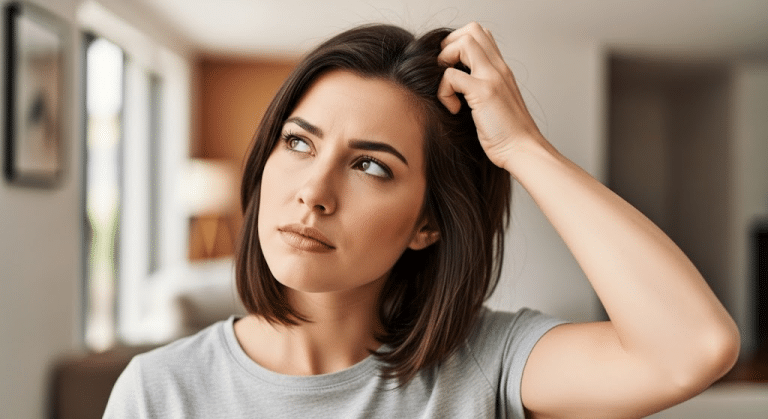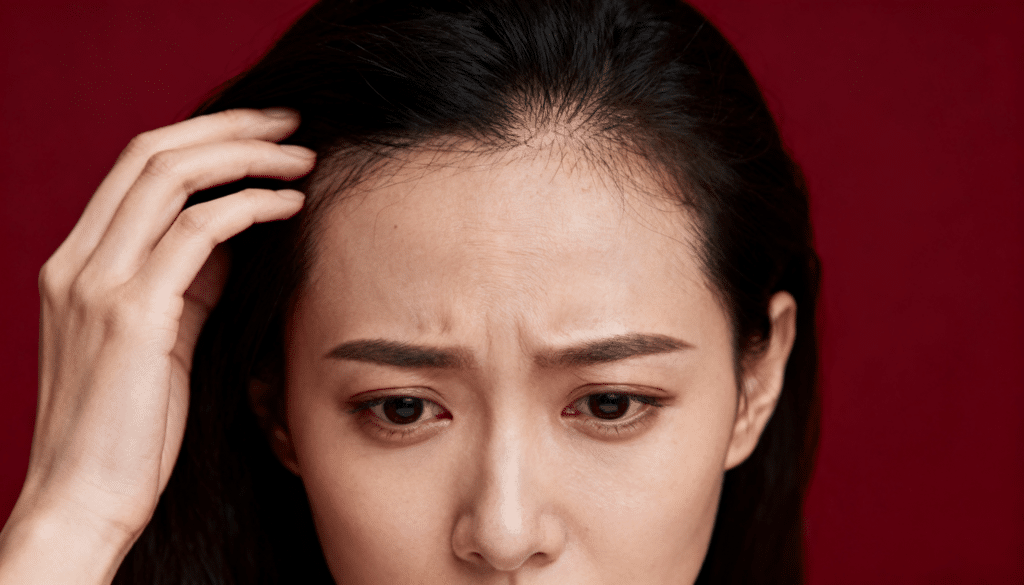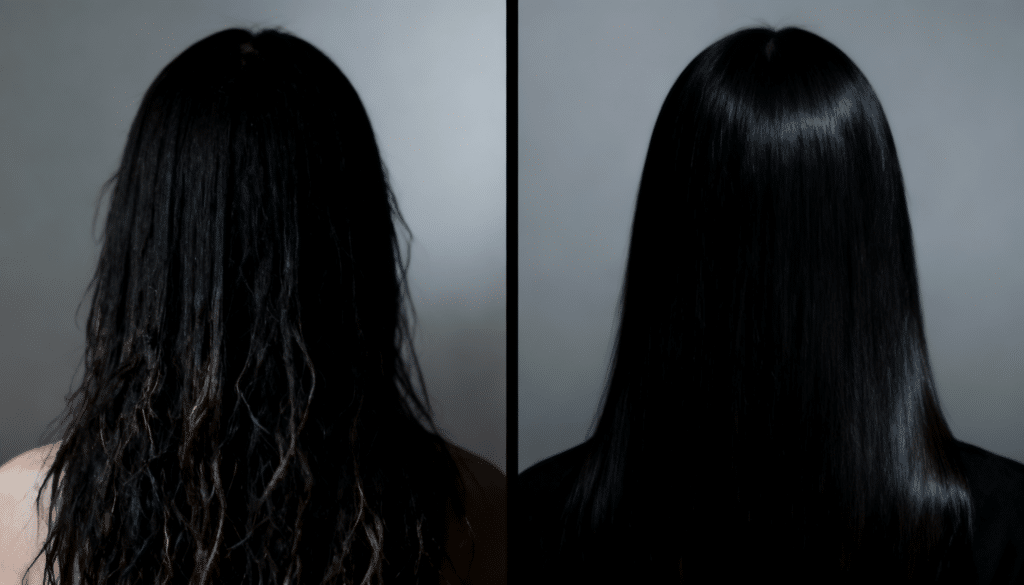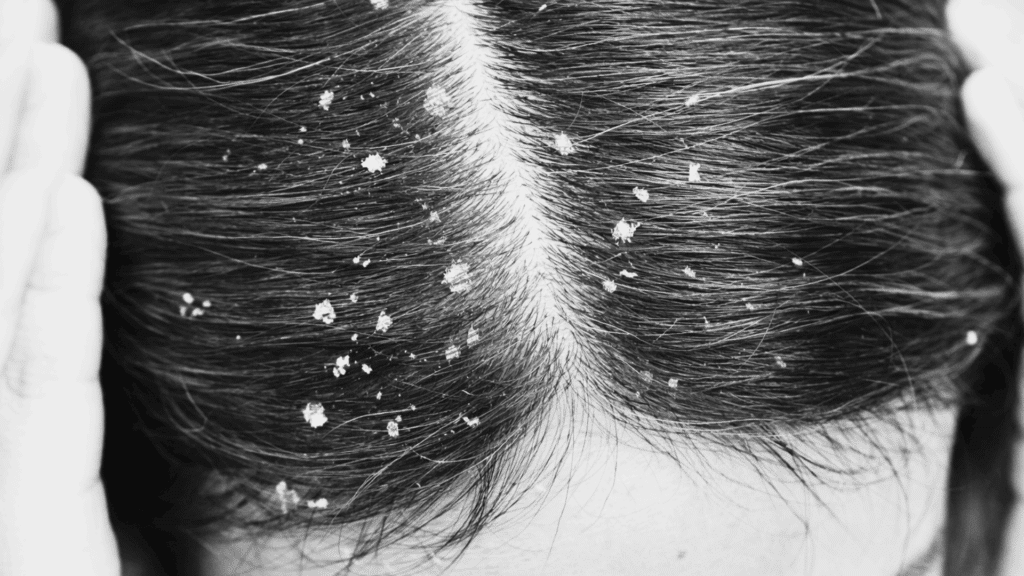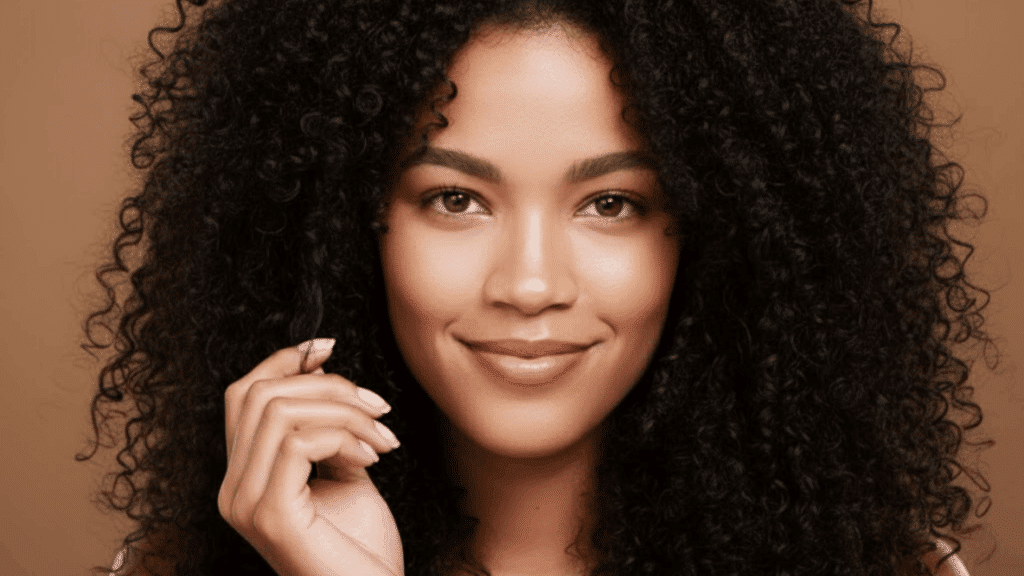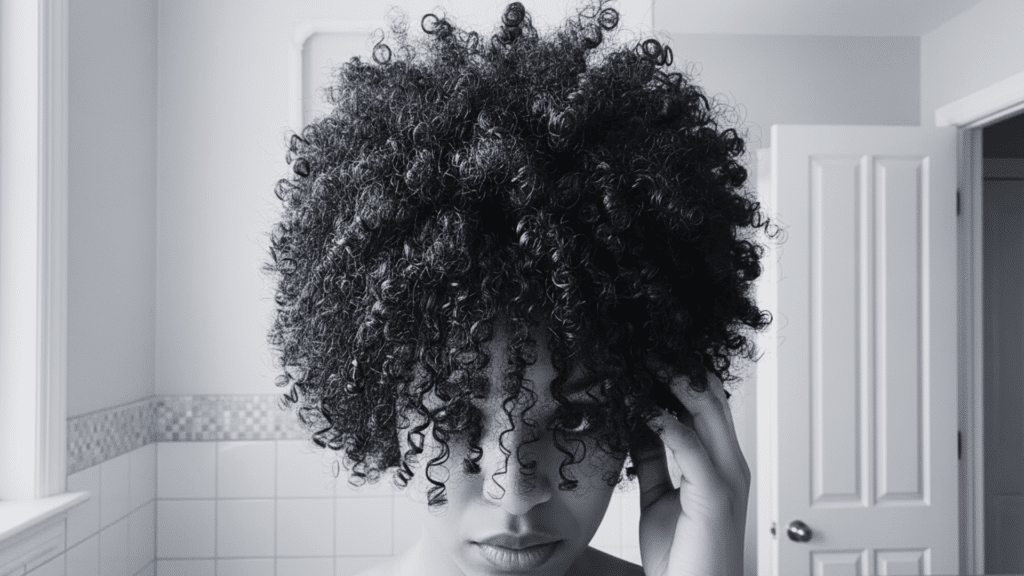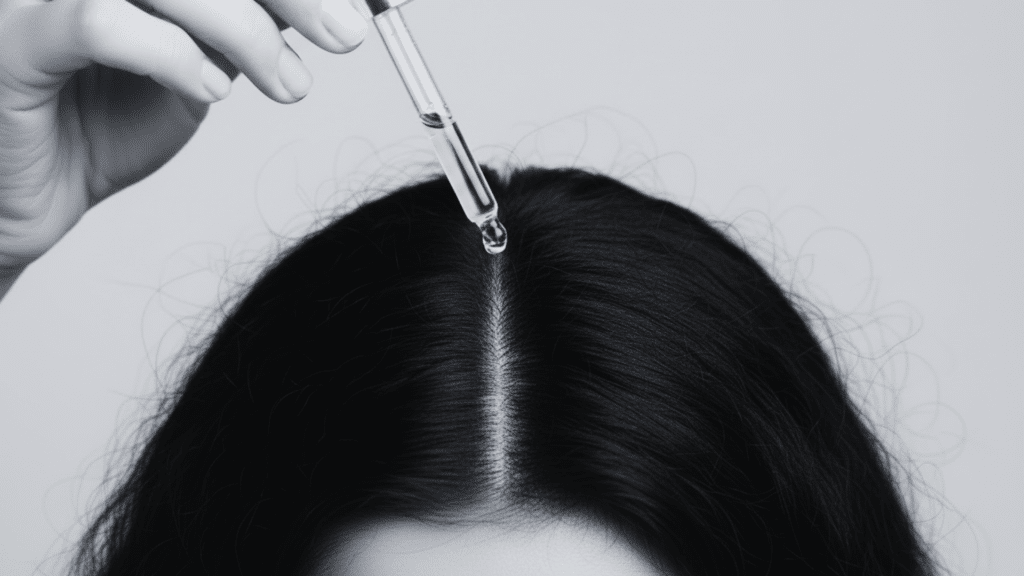Does an itchy scalp mean hair growth? Many people believe this old tale, but the truth might surprise you. It can lead to itchy scalp hair loss.
That annoying itch on your head could signal several different things – from dry skin to product buildup, and sometimes even medical conditions.
While hair growth can occasionally cause mild itching, it’s often not the main reason behind that persistent scratching.
Understanding what’s really happening on your scalp helps you find the right solution and stop the discomfort for good.
Busting the Myth of Itchy Scalp & Hair Growth
Many people mistakenly believe that an itchy scalp indicates hair growth. This common belief makes them ignore real problems that could harm their hair.
The truth is different. Itchiness usually comes from scalp conditions like dandruff, dryness, or irritation. These issues don’t help hair grow – they can actually cause hair loss if left untreated.
People who believe this myth often miss warning signs. They think discomfort means their follicles are working hard. Understanding what really causes scalp itching helps people take better care of their hair and address actual problems.
Lifestyle Factors Contributing to Itchy Scalp
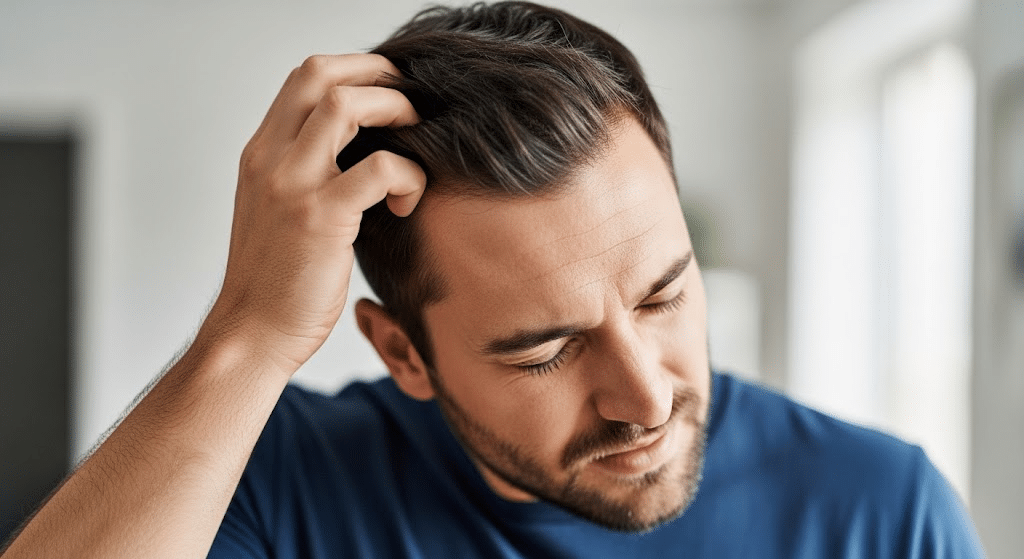
Daily habits and lifestyle choices play a major role in scalp health. From hair washing routines to stress levels, these factors can trigger persistent itching and discomfort that many people overlook as potential causes.
1. Using hot water during hair washing: Hot water strips natural oils from the scalp, leaving it dry and irritated. This creates a cycle of itching and flaking that many people don’t connect to their shower temperature.
2. Wearing tight hats or headgear regularly: Tight headwear restricts airflow to the scalp and traps sweat and bacteria. This creates an environment where irritation thrives, especially for people who wear hats daily.
3. High stress levels and poor sleep: Stress hormones can trigger inflammatory responses in the scalp. Poor sleep weakens the immune system, making the scalp more sensitive to irritation and slower to heal.
4. Poor diet lacking essential nutrients: Missing vitamins like B-complex, zinc, and omega-3 fatty acids affects scalp health. A nutrient-poor diet leads to dry, flaky skin that itches persistently.
5. Exposure to harsh weather conditions: Extreme cold, wind, or sun damages the scalp’s protective barrier. Seasonal changes often trigger itching episodes that people blame on other factors instead of the weather.
Hidden Causes for an Itchy Scalp, Which Does Not Mean Hair Growth
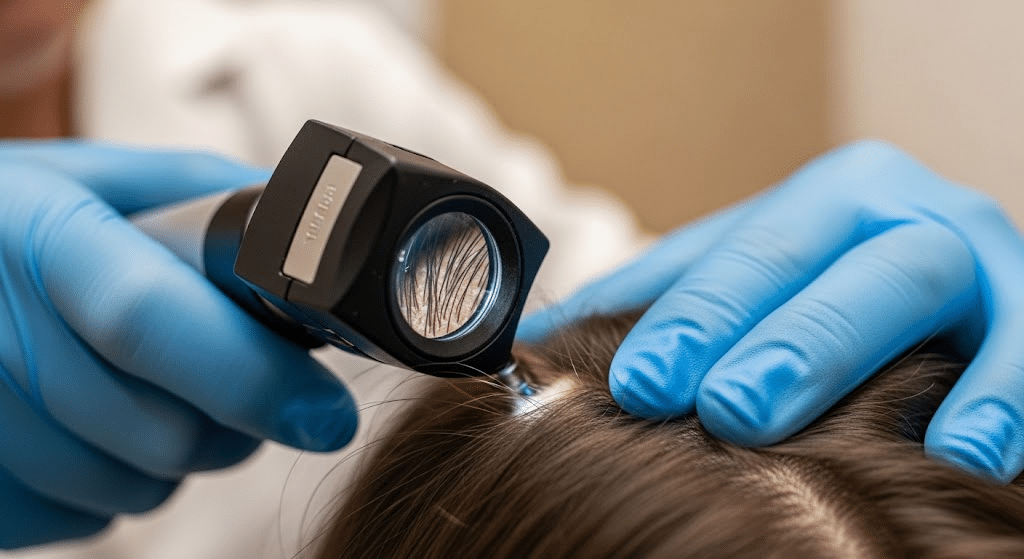
Itchy scalp means hair growth? Maybe not. Some scalp itching problems go beyond obvious causes like dirty hair or harsh products. These hidden triggers often go unnoticed, leaving people puzzled and wondering what’s wrong.
Understanding these less obvious factors helps identify why the itching persists even after trying standard solutions.
1. Seborrheic Dermatitis (Dandruff)
A very common cause of itchy scalp and hair loss in females is dandruff. It shows up as greasy or dry scales, sometimes with redness around oilier areas.
It tends to come and go, often improving with antifungal or medicated shampoos.
- Symptoms: Itchy scalp, white or yellowish flakes, redness.
- Cause: Inflammatory response to skin yeast (Malassezia) and excess sebum.
2. Dry Scalp (Xerosis)
When the scalp’s barrier is dry, tight, and under-moisturized, itch and fine flaking follow.
It’s different from dandruff and may worsen with cold weather, over-washing, or harsh products; hydration and gentle care usually help.
- Symptoms: Tightness, fine powdery flakes, itch.
- Cause: Lack of moisture/barrier dysfunction rather than yeast overgrowth.
3. Scalp Psoriasis
An autoimmune condition that creates thick, scaly plaques on the scalp and hairline. Itching can be intense, and plaques may extend beyond the scalp.
Treatment often combines medicated shampoos and prescription topicals.
- Symptoms: Raised, scaly plaques, itch, sometimes burning.
- Cause: Immune-driven overproduction of skin cells (chronic inflammation).
4. Tinea Capitis (Scalp Ringworm)
A contagious fungal infection involving hair and scalp. Itching, scaling, and patchy hair loss are typical; children are most affected.
Oral antifungals are usually required; topical shampoos alone aren’t enough.
- Symptoms: Itch, scaly patches, broken hairs, and tender lymph nodes at times.
- Cause: Dermatophyte fungi infecting hair shafts and scalp skin.
5. Allergic Contact Dermatitis (Hair Dye/Fragrance)
Allergens like PPD in permanent dyes or certain fragrances can trigger delayed scalp reactions. Itch, burning, and rash may flare hours to days after exposure; avoidance and medical care are key.
- Symptoms: Itchy, red, sometimes swollen or oozing scalp rash.
- Cause: Immune (type IV) allergy to ingredients such as PPD, fragrances, and preservatives.
6. Irritant Contact Dermatitis (Harsh Products/Over-Cleansing)
Even without a true allergy, frequent washing, strong surfactants, or chemical processes can strip the barrier and provoke itch. Scaling and tenderness often improve when routines are gentled and simplified.
- Symptoms: Burning/itching, tightness, diffuse flaking after product use.
- Cause: Barrier damage from irritants (e.g., harsh shampoos, over-cleansing, chemical services).
7. Scalp Folliculitis
Inflamed hair follicles can itch or feel sore, sometimes with tiny pustules.
It may follow sweating, occlusive headwear, or shaving, and can be bacterial, yeast, or even ingrown-hair related.
- Symptoms: Itchy or tender bumps/pustules around follicles.
- Cause: Follicle inflammation from infection, friction, or blockage.
8. Head Lice (Pediculosis Capitis)
Tiny insects feed on scalp blood and cause intense itch, especially at the nape and behind the ears. Nits (eggs) stick to hair shafts; treatment requires pediculicides and meticulous nit removal.
- Symptoms: Persistent itching, tickling sensation, visible nits/lice, excoriations.
- Cause: Infestation with Pediculus humanus capitis.
9. Atopic Dermatitis (Scalp Eczema)
People with eczema can get recurrent scalp itch and scaling that mimics dandruff. Barrier repair, trigger management, and, when needed, medical treatments help calm flares.
- Symptoms: Itchy, dry, inflamed patches; may extend beyond the scalp.
- Cause: Chronic, relapsing inflammatory skin disease with barrier dysfunction.
10. Product Buildup & Residue
Layers of styling products, dry shampoo, oils, and sweat can trap debris and irritate the scalp. Occasional clarifying or gentle exfoliation helps, but over-scrubbing can backfire if the scalp is already inflamed.
- Symptoms: Itch, dull hair, waxy or gritty scalp feel, flaky film.
- Cause: Accumulated residue and dead skin interfere with normal turnover.
11. Scarring Alopecias (e.g., Lichen Planopilaris)
Some forms of permanent hair loss start with scalp inflammation, itch, or pain. Early evaluation is crucial to limit further follicle damage and scarring. Itchy scalp hair loss is also possible.
- Symptoms: Itch, burning, tenderness; thinning with shiny or scarred patches.
- Cause: Inflammatory processes that destroy follicles and replace them with scar tissue.
How Does Hair Loss Treatment Give Rise to an Itchy Scalp
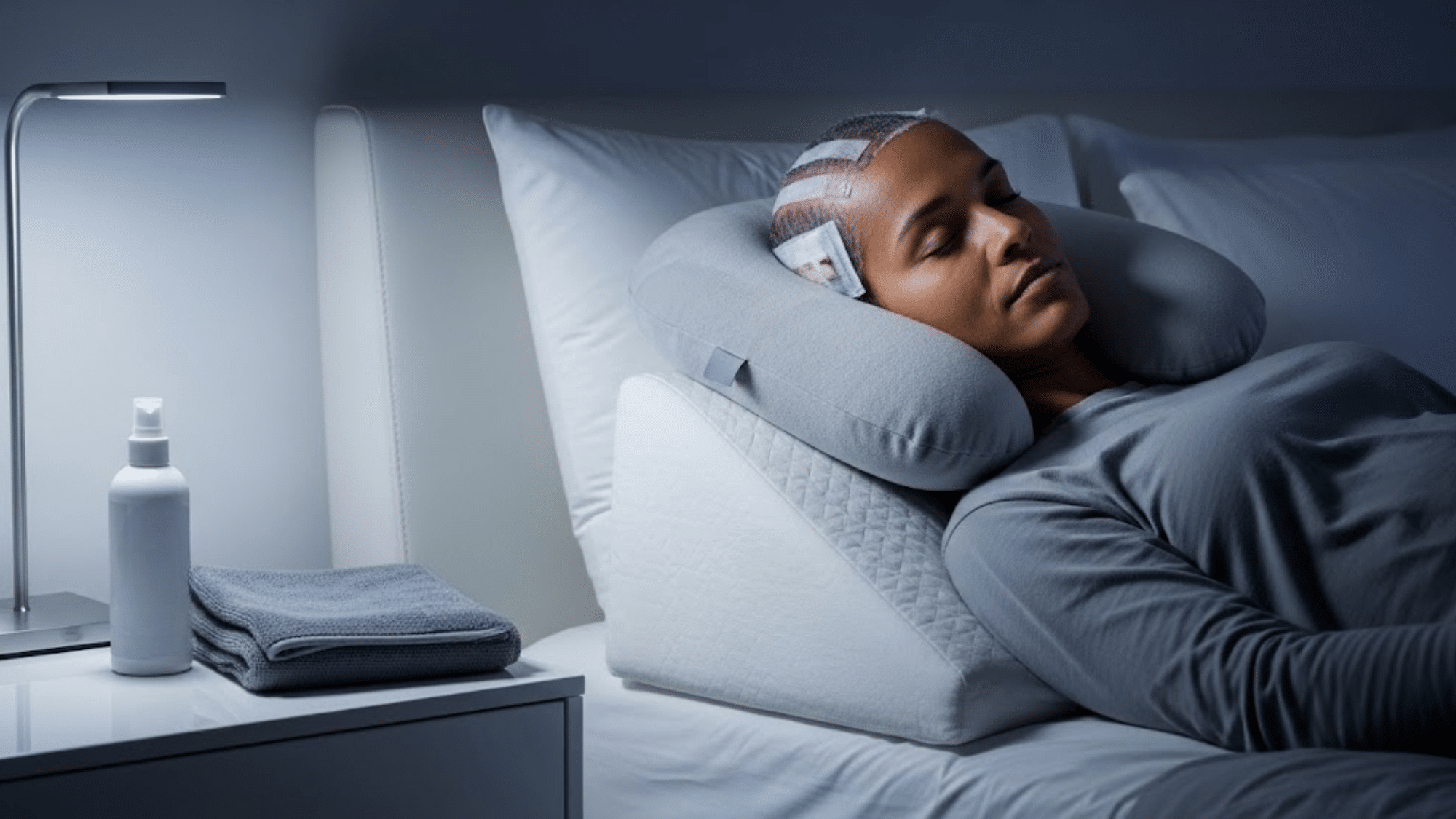
Hair loss treatments often trigger scalp itching in several ways. Topical treatments like minoxidil increase blood flow to hair follicles, which can create a tingling or itching sensation as circulation improves.
Many hair growth products contain active ingredients that irritate sensitive skin.
Alcohol-based formulas dry out the scalp, leading to flakiness and itching. Some people experience allergic reactions to preservatives or fragrances in these treatments.
Oral medications can also cause scalp irritation as a side effect. The body’s adjustment period to new treatments sometimes includes temporary itching.
Additionally, people using hair loss treatments may wash their hair more frequently or use stronger shampoos, which strip natural oils and cause dryness. This combination of factors makes the scalp more prone to itching during treatment periods.
What are the Actual Signs of Hair Growth?
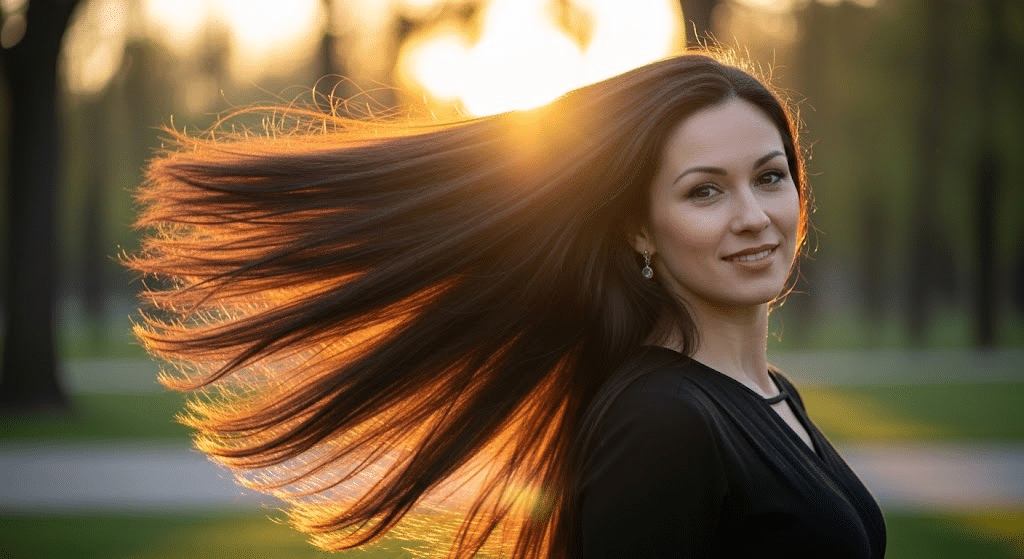
Real hair growth shows specific signs that people can actually see and feel. An itchy scalp means hair growth is a myth!
These genuine indicators help separate fact from fiction when it comes to understanding whether hair is truly growing or if other issues are causing scalp sensations.
| Sign | What it Means |
|---|---|
| New baby hairs are appearing | Fine, short hairs growing along the hairline indicate fresh follicles producing new growth |
| Increased hair density | More hair strands per square inch means existing follicles are becoming more active |
| Less hair shedding | Fewer hairs falling out during washing or brushing shows healthier, stronger hair retention |
| Thicker individual hair strands | Each hair becoming wider indicates improved follicle health and better nutrient supply |
| Hair feels fuller when styling | Increased volume and body during styling reflects more hair growing from the scalp |
Home Remedies for Itchy Scalp
The idea that an itchy scalp means hair growth is untrue; it’s most likely dandruff. Simple home treatments can provide relief for mild scalp itching. These evidence-based methods help people manage symptoms safely at home.
However, knowing when to seek professional help prevents minor issues from becoming serious problems.
- Use medicated or anti-dandruff shampoos containing zinc pyrithione or ketoconazole.
- Wash hair with lukewarm water instead of hot water to prevent dryness.
- Apply diluted apple cider vinegar rinse to restore scalp pH balance.
- Try tea tree oil mixed with carrier oil for its anti-inflammatory properties.
- Perform patch tests before using new products to avoid allergic reactions.
- Avoid scratching and use gentle circular motions when washing hair.
- .See a doctor if itching persists beyond two weeks or includes severe redness, pus, or hair loss.
Bottom Line
So when someone says itchy scalp means hair growth, you now know better. This myth can actually prevent people from getting the help they need for real scalp problems.
Instead of waiting for imaginary hair growth, focus on treating the actual cause of your itching.
Whether it’s changing your hair care routine, using medicated shampoos, or consulting a doctor, taking quick action leads to a healthier scalp.
Remember, true hair growth shows through visible signs, not uncomfortable itching sensations. Your scalp deserves proper care, not wishful thinking about mysterious growth.



